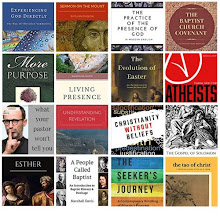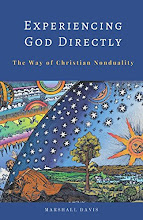People have a lot of different reactions to the Book of
Revelation. Some are confused by it. Others are afraid of it. Some are obsessed
by it. Most are ignorant of it. The average person has likely never heard their
pastor preach a sermon from the Book of Revelation. Most mainline pastors have
never studied it in depth, much less led their congregation in exploring the
last book of the New Testament.
But I – in all my naiveté and egotism – took it upon myself
to lead my first fulltime church after seminary in a weekly, verse-by-verse,
study of Revelation that lasted six months. I had the confidence to attempt this
because of a course I took in seminary, which was taught by a young professor (now
deceased) named James Blevins.
It was an eye-opening course! When I enrolled in the class
all I knew about Revelation was what I had read in Hal Lindsey’s bestseller The Late
Great Planet Earth, published in 1970. (That dates me!) The Left Behind series of books and movies that
dominated the 1990’s and 2000’s were only a twinkle in the eye of Tim LaHaye.
I assumed that the only way Revelation could be interpreted
was in a futurist manner, meaning that it predicted events to happen in the
future – our future. Dr. Blevins showed
me another way; it should be read like the prophetic books of the Old
Testament. It has to do with events in the time it was written.
Most of Revelation is about the near future from the Apostle
John’s point of view. The author of Revelation says this repeatedly in the prologue
and epilogue of Revelation. It takes intentional blindness to miss those verses.
But Christians – if nothing else – are very good at self-deception.
Blevins presented Revelation as a cosmic drama, patterned
after Greek and Roman plays performed at the great theatre in his adopted
hometown of Ephesus in Asia Minor (present day Turkey.) He presented this view
in his book Revelation as Drama (1984).
That idea was not original with him, but it certainly was new to me. It really
struck home to me when I later visited the ruins of ancient Ephesus.
Revelation was intended to be heard and seen – like John
heard and saw it. To demonstrate his point our large seminary class actually
performed the whole book of Revelation. (I was the “mighty angel” of Revelation
18:21). I will never forget the experience. Revelation came alive for me, and I
actually understood it! It was like seeing a Shakespeare play performed for the
first time. Incomprehensible Elizabethan English actually makes sense when heard
live on stage.
I have never forgotten what I learned in seminary, and what
I taught my first church in Southern Illinois. I have kept the notes I used back then and
referred to them throughout my forty year ministry. I have preached and taught
Revelation in every church I have served. Finally after many years I have
published my understanding of the Book of Revelation in a new book entitled Understanding Revelation.
In short it says that Revelation is more about Christ with
us now than it is about deciphering clues to the date of Christ's Second
Coming. That will be disappointing to date-setters, but good news (the literal
meaning of the word “gospel”) to Christians seeking to make sense of this
strangest book of the Bible.














